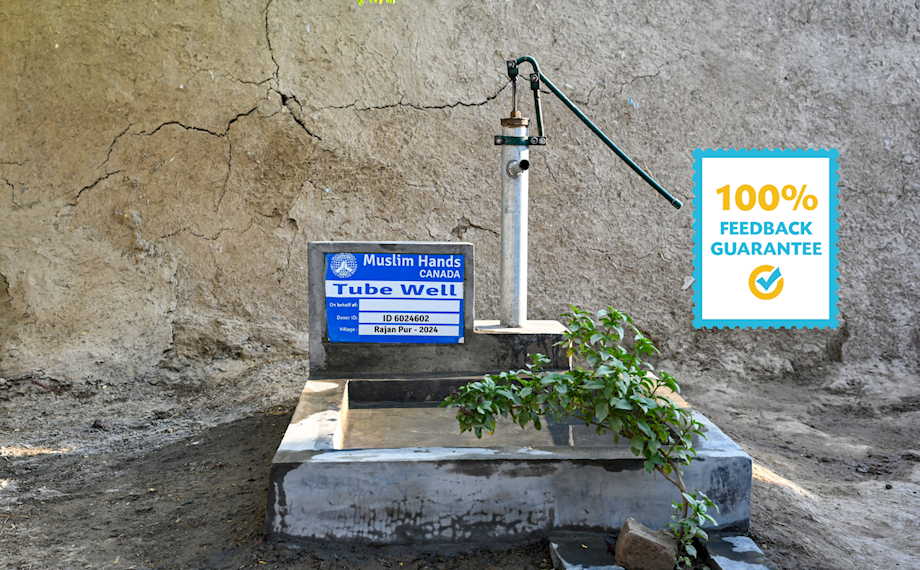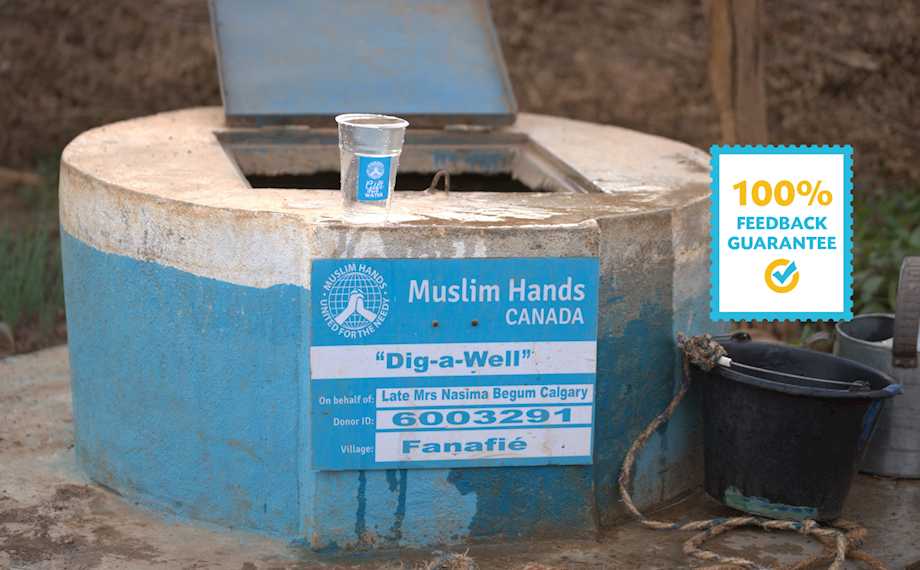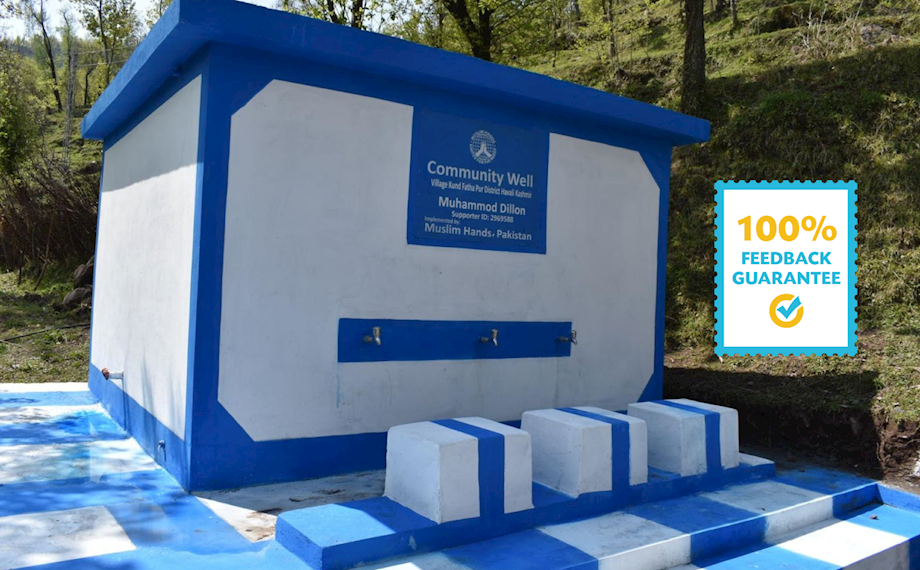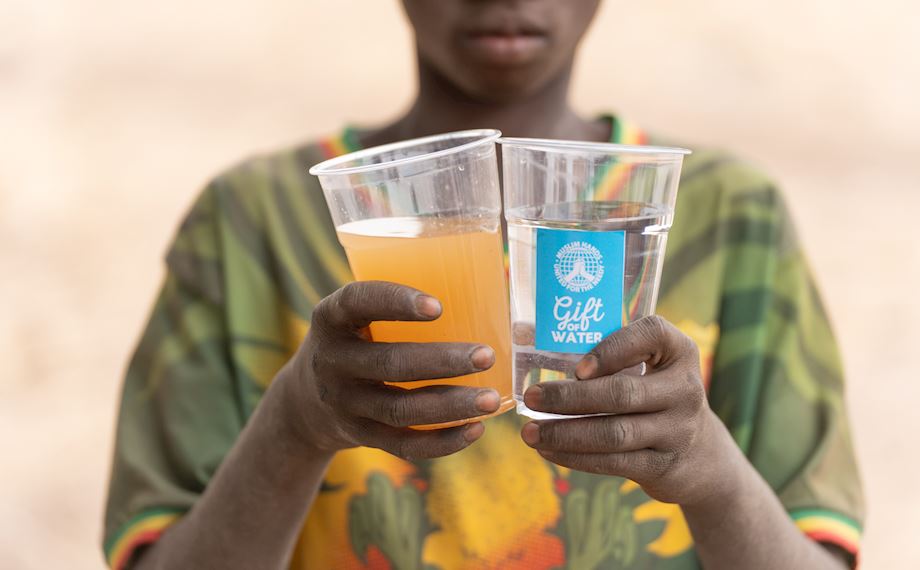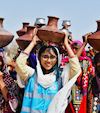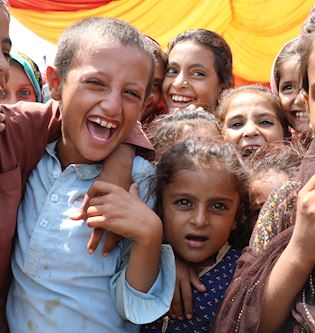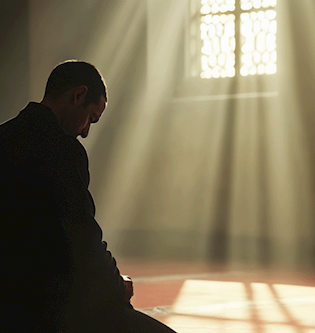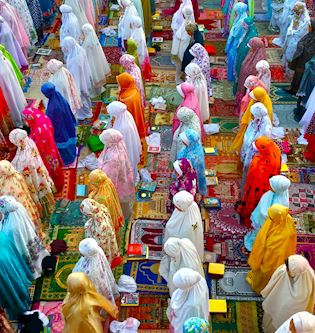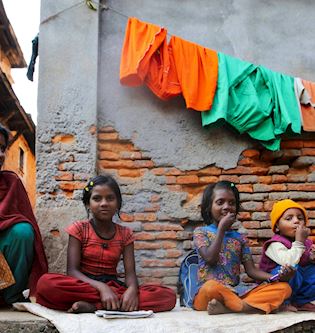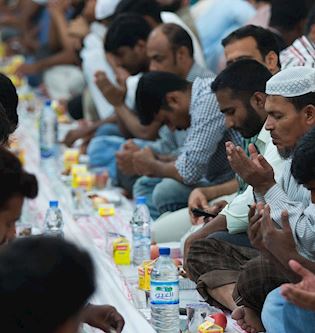5 Ways To Stay Hydrated While Fasting

Drinking the recommended eight glasses of water each day is difficult when you are fasting and for many of us, feeling thirsty is normal during the month of Ramadan. However, feeling thirsty is actually the first sign that your body is dehydrated. It is therefore very important that you increase your body’s fluid intake when fasting.
Here are 5 easy steps to ensure that you stay hydrated during Ramadan.
1. Drink the right stuff at the right time
Drinking large amounts of water immediately before your start, or just after you have broken your fast is not helpful to your body. Your body will struggle to store up the large amount of water, so the majority will simply pass through to your bladder.
In order to maintain hydration throughout the day, drink small amounts of water at short, regular intervals during the night. A good way to do this is by keeping a bottle of water next to your bed and with you during Taraweeh prayers .
Remember that although they are still fluids, sugary drinks, fruit juices, coffees and teas actually cause the body to lose fluid easily.
2. Plan a water-wise menu
Your body doesn’t get its hydration just from water. There are plenty of foods that have a high water content and can therefore help keep the thirst at bay, for longer.
Consider starting your day with a bowl of oatmeal. The grains soak up a surprising amount of water and milk and can make a delicious breakfast, especially with the addition of fresh fruits, like watermelon, strawberries, grapefruits and cantaloupe. These fruits have a 90% water content and are an excellent source of hydration.
Another breakfast option is a cold and filling banana smoothie. Bananas are made up of 70% water and also act as a thickening agent.
As a general rule, you should avoid salty and spicy food, especially in the morning. Though tempting, they will inevitably make you thirstier throughout the day.
3. Stay indoors
If possible, try to minimize the time you spend outdoors, in direct sunlight. If you need to be outside during the hottest part of the day, then make sure you dress appropriately. Choose light and airy fabrics in pastel shades and layer your clothing.
4. Stay fit but hydrated
When you sweat, your body loses a lot of water. Although strenuous exercise and physical activities are not recommended during the month of Ramadan, it is important that you do not remain inactive. The best time to work out is straight after you have broken fast or just before you go to sleep. Remember to keep the exercises light and refrain from drinking large amounts of water in one go.
5. Listen to your body
As the month progress, thirst will become a normal feeling but it doesn’t mean you should ignore the signs of your body being dehydrated. Cracked lips, flushed skin and a tendency to always be tired are usual indications that your body is lacking enough water. You may also experience an increase in breathing, dizziness, headaches and a higher than normal pulse rate. Always listen to your body and adjust your water intake accordingly.
We hope that these simple suggestions will help you have a smooth and easy Ramadan and we pray that you get the most out of this blessed month. Even when you are thirsty, remember to embrace the spirit of this special month, try and be positive and count your blessings.
Though we are able to quench our thirst during iftar, the same is not true for millions around the world who lack access to clean, safe, drinking water. Give water during this blessed month and earn endless rewards.





